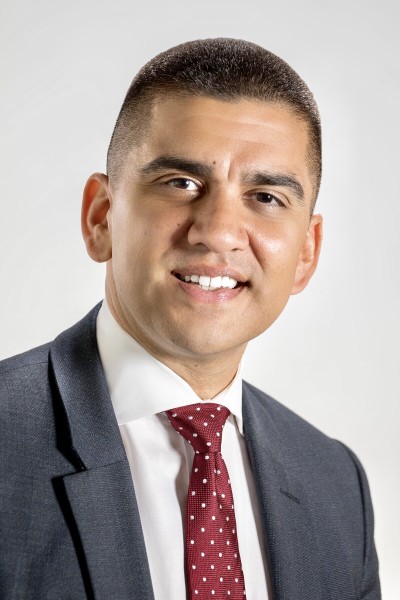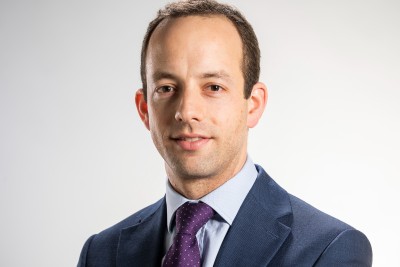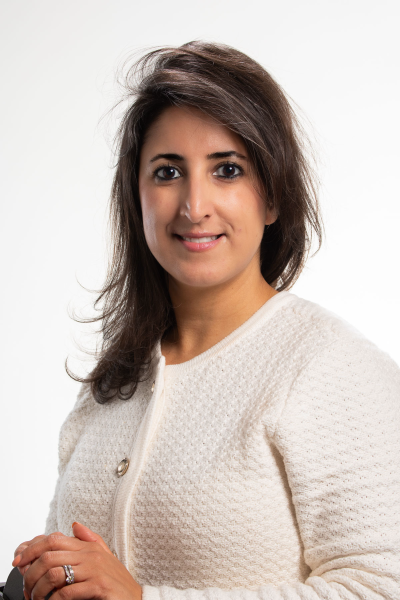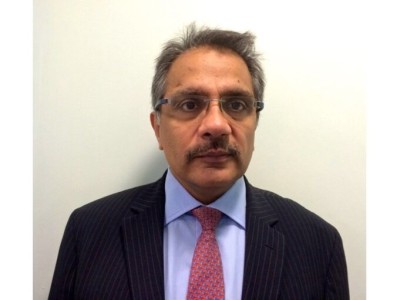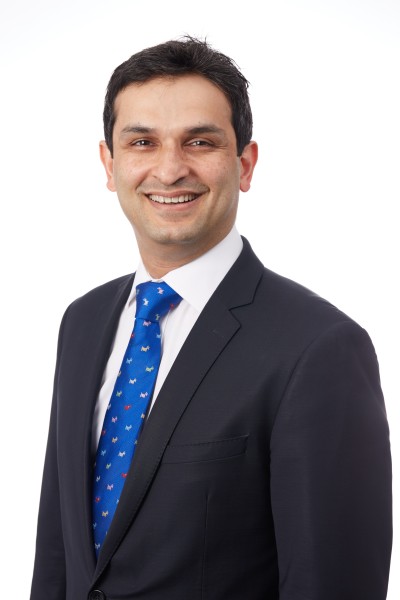The Specialist Centre for Kidney Cancer at the Royal Free Hospital provides cutting-edge surgical treatments, state-of-the-art diagnostic procedures, and a holistic care approach for patients with kidney cancer.
It is the largest kidney cancer centre in the UK and its surgical outcomes are some of the best in the country.
The centre’s multidisciplinary team of specialists guide and support patients throughout their treatment journey, caring for people from across north and east London, and throughout the UK and overseas.
The team aim to make a positive impact on the lives of those affected by kidney cancer and benign (non-cancerous) kidney diseases.
Multidisciplinary care
The centre offers a patient-centred approach, providing comprehensive oncology treatments tailored to an individual's needs.
Its multidisciplinary team consists of urologists, oncologists, radiologists, pathologists, clinical nurse specialists, surgical care practitioners and other specialists who collaborate closely to create integrated treatment plans, ensuring you receive the highest quality evidence-based care throughout your treatment journey.
Clinical nurse specialist and surgical care practitioners
Patients diagnosed with cancer will have a key worker, typically a clinical nurse specialist (CNS), who will provide support and co-ordinate care throughout their illness.
The key worker will also provide verbal and written information about the patient's condition and treatment and offer health education.
In addition to the CNS, there may be other specialists on the cancer care team like the surgical care practitioners who will support you if you are undergoing kidney surgery.
If you would like to refer a patient to our service, please fill in our referral form.
Renal cancer guidelines
The guidelines you can download below have been developed by the Royal Free London in conjunction with our partners within the London cancer network.
A referral to our centre does not necessarily mean you have kidney cancer.
In addition to expertise in treating kidney cancer, our centre also offers surgery for benign (non-cancerous) kidney diseases. Its team of specialists have extensive experience in performing surgery for kidneys and ureters that are not functioning correctly. This will be explained to you during your consultation.
Once we receive a referral from your local doctor, you will be invited to the Royal Free Hospital to meet with our doctors, nurses, and surgical care practitioners.
During this meeting, we will discuss your investigation results and plan your treatment.
We understand some patients travel from far away, and we will advise you when it is strictly necessary for you to physically attend the hospital or if the consultation can be done over the phone. Our goal is to provide you with the best care possible while minimising any inconvenience to you.
Sometimes, your doctor may recommend you have a biopsy (where a sample of tissue is taken from your body) if you have not had one before you were referred to us. A biopsy helps us to identify the cancer type and determine the cancer stage so we can develop the best course of treatment for you.
Our clinics are located on the 3rd floor of the Royal Free Hospital. Please follow the directions for ‘Kidney and Urology Centre’ once you have arrived at the hospital.
If you have questions about your outpatient clinic appointment, please contact the booking team via the contact details at the top of this page.
To find out what matters to you, your clinical nurse specialist or support worker will offer you an assessment of your needs.
This is often called a Holistic Needs Assessment (HNA) and should be offered to you soon after your diagnosis and at other significant times, such as at the end of a phase of treatment. An HNA gives you the opportunity to think about and discuss your needs.
During your treatment, whether at the start, when you were diagnosed or towards the end of your treatment, you will be invited to complete a HNA and then arrange an appointment either in a face-to-face clinic, or by phone or video link to talk to one of our healthcare team about your wellbeing.
The discussion should take around 30 minutes and will focus on:
- how you are feeling
- what your immediate concerns are and what is most important to you
- any worries you may have for the future
The aim of the discussion is to find out about any needs and concerns you may have. This includes your physical health, emotions, spiritual health, work, finances and family life. It can help you and our team to see where you may need help.
Together, we can talk about practical solutions and develop a plan to help you manage these.
Being diagnosed with cancer can be overwhelming, leaving you with a range of emotions and unpleasant symptoms.
You may feel confused, worried, or distressed, making it difficult to move on after treatment.
While some may feel relieved and ready to return to normal life, others may struggle to adjust to life after cancer.
It is important to remember that adjusting to life after cancer takes time, and the emotional impact of cancer can hit home after treatment.
The nursing team is here to support you through this journey of living with and beyond cancer. Do not hesitate to ask for help and take the time you need to heal and adjust to your new normal.
Cancer counselling service
You may find it useful to speak to a counsellor, psychotherapist or psychologist near your local hospital. You can ask your clinical nurse specialist to refer you to these services. They will know about the services available.
Cancer information and support centres
For up to date, good quality and appropriate advice and support about every aspect of cancer, you can speak to specialists at the following charities, both of which have centres at the Royal Free London:
Kidney cancer patient support group
The kidney cancer patient support group has been running since 2014 and helps patients through sharing their experiences with each other and increasing their knowledge of kidney cancer.
If you would like to become a member and receive information about the support group by post or email, please contact us on 020 7794 0500 ext 32467, or email rf-tr.
Macmillan cancer support
Information on living with the practical, emotional and financial effects of cancer
Macmillan cancer support website
Tel: 0808 808 0000
Maggie’s
Information to help you cope with a cancer diagnosis for you and your family.
Maggie’s website
Tel: 020 3981 4840
Kidney cancer UK
Provides information and support for kidney cancer patients and their carers.
Kidney cancer UK website
Tel: 0800 002 9002
Cancer research UK
Cancer research UK website
Tel: 0808 800 4040
Marie Curie cancer care
Marie Curie cancer care website
Tel: 0800 090 2309
Action Kidney Cancer
The Specialist Centre for Kidney Cancer is committed to advancing the field of kidney cancer treatment through research.
It’s team of specialists is involved in a number of research projects aimed at developing new treatments and improving existing ones.
We are proud to be at the forefront of kidney cancer research, and we are dedicated to improving the lives of our patients.
Speak to your nurse or doctor if you would like to take part in research.
If you would like to support research into kidney cancer or patient-related activities of the Kidney Cancer Foundation, our charitable fund is managed by the Royal Free Charity and you can make a donation here or take part in fundraising for us.
Every penny is received with sincere gratitude and is used for kidney cancer research and education.
 Translate
Translate


